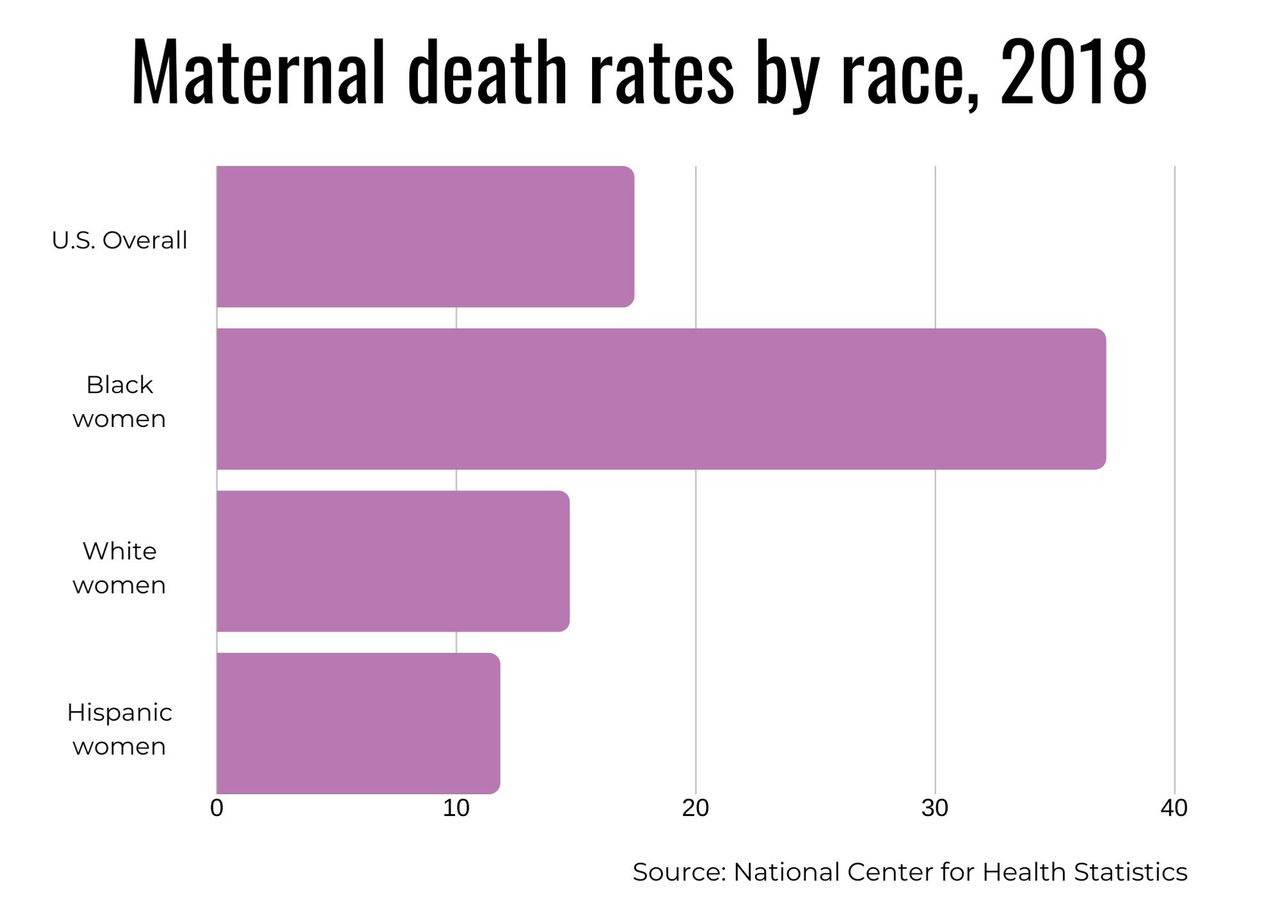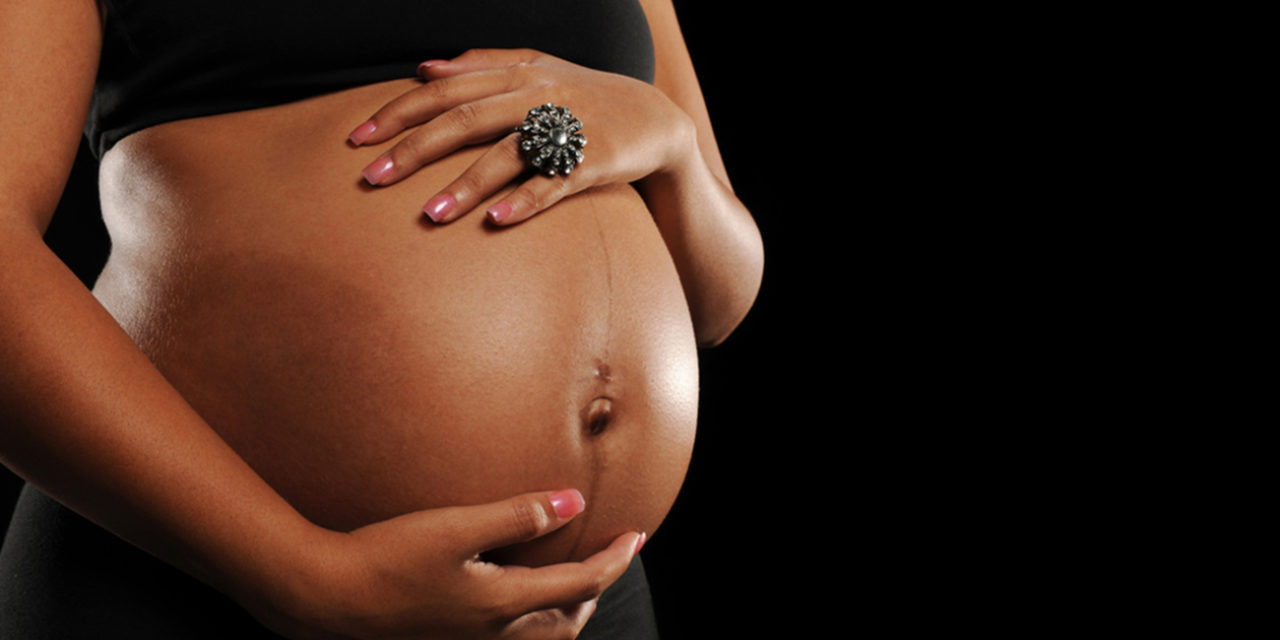Dear Dr. Vero,
I am 5 months pregnant and I am scared because I keep seeing stories on Facebook of Black women dying during or soon after childbirth. What is going on?
Scared Mom
Dear Scared Mom,
These stories of mothers dying during and after childbirth are scary to read, especially when you are expecting a baby. Pregnancy is supposed to be a joyful time, but it can also be stressful. Reading these stories of moms dying from pregnancy-related problems will likely increase your stress level and prevent you from enjoying your pregnancy. But, these stories can also be an opportunity to learn some facts and empower yourself to advocate for the excellent care you and your baby deserve.
About 700 women in the United States die per year from complications from childbirth. Compared to other similar countries, the U.S. has the worst rate of moms dying from pregnancy-related complications, despite the fact that it spends the most amount of money on healthcare. Mothers die in the U.S. at a rate more than six times higher than Italy and almost three times higher than Portugal. However, the maternal mortality rate is not the same in all states. Thankfully, Massachusetts and Connecticut have some of the lowest rates of maternal death in the U.S. Meanwhile, other states with lower populations of Cabo Verdeans, such as Louisiana, have as high of maternal death rate as Cabo Verde. Yet, Cabo Verde’s maternal death rate has significantly decreased over the years.

It is true that Black women in the United States die from childbirth three times more often than white women and this disparity is present throughout different states. Why are there such great disparities in maternal mortality in the U.S.? Is it education? Is it age? Data from the Centers for Disease Control and Prevention (CDC) clearly shows that it is not due to either of these factors. In fact, when it comes to pregnancy-related death, a college-educated Black woman is almost twice as likely to die than a white woman without a high school degree and a 20-year old Black woman is 2.3 times more likely to die than a 30-year old white woman. So, what is the root cause then? The answer is complex.
Strokes, heart disease and high blood pressure are major causes of pregnancy-related death and Black women are at higher risk for these problems. Still, about two-thirds of these deaths are preventable. Racial disparities in maternal death cannot be explained by genetic differences as many still believe. Poor housing, food instability, unequal access to healthcare, biases encountered in the health system and stress from years of facing daily acts of racism lead to poor health outcomes. Racism is a significant cause of the disparity in maternal death in the U.S. This country was founded on idealistic views, which did not translate into practice for all people. We have been dealing with systemic and institutionalized racism that continues to negatively impact the quality of care that patients, including pregnant women, receive.
To solve a problem, we first have to name it. Then, we find its source and have partners willing to work for a solution. We know the problem. We know its causes and an increasingly greater number of us are actively working at different levels—through research, education, clinical care and advocacy—to help close the racial gap in maternal death. In the past few years, some politicians have noticed the problem and introduced bills to help improve the health of mothers and decrease their mortality. Notably, members of the Black Maternal Caucus, including Senator Kamala Harris, introduced the Black Maternal Health Momnibus to help end preventable maternal mortality and close the health disparities in the U.S.

What can you do?
- Educate yourself about how to stay healthy during your pregnancy and postpartum.
- Find a trusted partner— a spouse, a sister, a friend or a doula—to be your healthcare advocate.
- Find a healthcare team—including physicians, nurses and other staff members—as well as a clinic or hospital that treat you with respect and dignity, and thus earn your trust.
- Attend your prenatal visits and follow the advice of your trusted obstetrical team.
- If you have medical problems, make sure you are under great care of a physician team and that your medical problems are under control.
- Pregnancy can worsen pre-existing medical conditions, so you may need extra medical care and more medication in order to be well and have a healthy baby.
- Don’t be afraid to seek care when you feel unwell or you are concerned about your baby’s well-being.
- Protect yourself from getting sick from bacterial and viral infections, such as COVID-19.
- Write letters to your representatives or call them to support bills that address maternal mortality and racial disparities.
Stay healthy, educate yourself and enjoy your pregnancy.
Be well,
Dr. Vero





